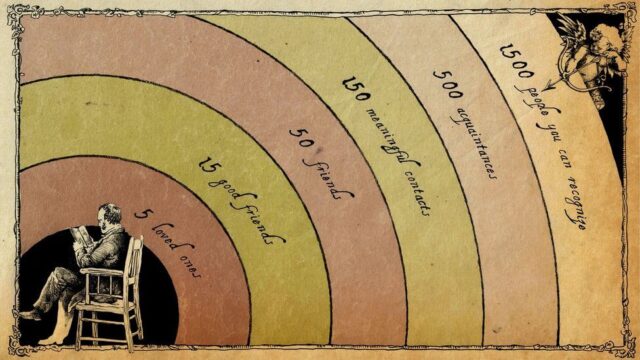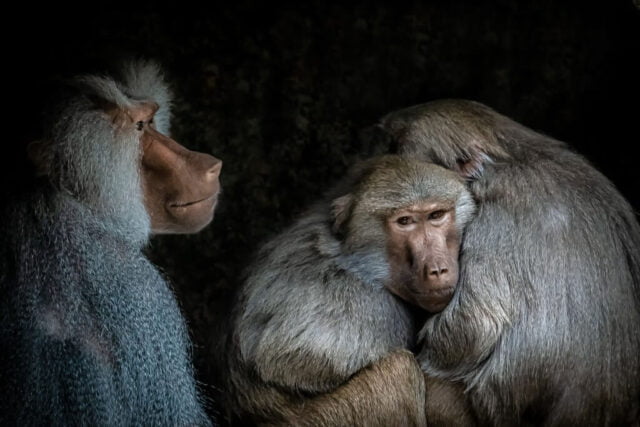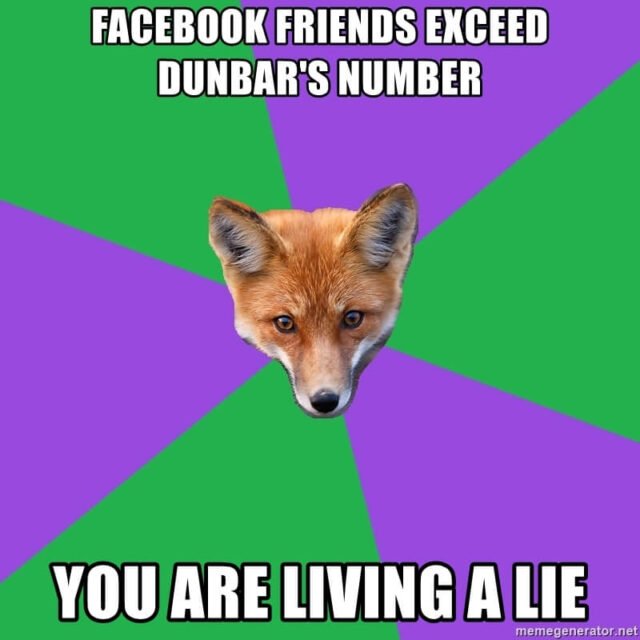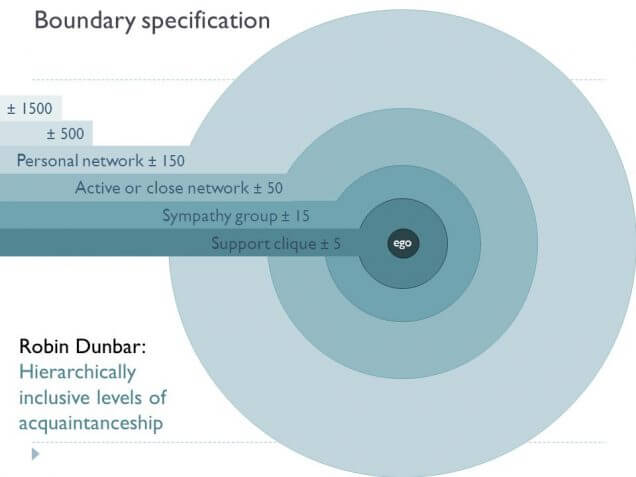A new study has put a question mark on the famous Dunbar’s number. Named after Oxford professor Robin Dunbar, Dunbar’s number is 150, equated to the maximum number of meaningful relationships one can have in a lifetime.


The professor called the study questioning his number a bluff.
Dunbar’s Number
In a 1993 study, Robin Dunbar, a British anthropologist, theorized that a person could only have a maximum of 150 meaningful relationships in a lifetime. This number came to be known as Dunbar’s number.

Basis Of The Dunbar’s Number
The original paper was based on a study conducted on monkeys and apes. Their neocortex’s size, the part of the brain concerned with conscious thoughts, was observed. Then this size was correlated to that of the ones they lived among.
A human’s neocortex is larger than that of an ape or a monkey, and so, Dr. Dunbar decided upon, on average, 150 as the ideal group size.

Read More: Watch: 10 Bollywood Movies That Made Our Friendship Bonds Stronger
The Latest Study In Opposition
Contradicting the professor, researchers at Stockholm University raised fingers at the number. They commented that 150 is nothing for a person who knows how to socialize and maintain relationships.

“We can learn thousands of digits of pi, and if we engage with lots of people, then we will become better at having relationships with lots of people,” said Johan Lind, author of the study published last week.
As per Dr. Lind and his associates, the neocortex does not limit the number of connections a person could maintain, and thus, opposed the original study.
They used recently updated methods and technologies to get to the same conclusion. As for the maximum number of friendships, Dr. Lind denied any precise number to be the limit.
Dr. Dunbar On The New Study
When asked about his views on the recent study, Dr. Dunbar, in an interview, called it “bonkers, absolutely bonkers.”
He further commented on the flawed statistical analysis undertaken by the researchers at the Stockholm University and that he was astonished at how misunderstood human relations stood in their study.

“I marvel at their apparent failure to understand relationships,” were his exact words. Unfortunately, his study, too, seemed to be misinterpreted by the researchers while referencing.
What Are Meaningful Relationships
As per Dr. Dunbar, a meaningful relationship is one wherein none is awkward on a chance encounter with another and a free flow of greeting and conversation takes place.
The number ranges from 100 to 250, with the average around 150 for a person to have meaningful relationships.

The study showed that a maximum of 2 relationships is formed at the birth of an individual, which goes on to increase at teenage. Late teens and people in their 20s experience a peak in their friendship-forming abilities.
The number of connections goes as high as 150 in their early 30s and stays the same until the 60s and early 70s, the point from where it starts to plummet.
Adding to that, concerning the final years of human life, “If you live long enough, it gets back to one or two.”
How Many Friends Does One Person Need?
Dr. Dunbar cited numerous historical and modern-day examples in his book titled “How Many Friends Does One Person Need” to further augment his paper.
Around 6000 B.C. the number was 120-150, based on the dwellings present. It increased to 160 In 1086. Modern armies contain, on average, 130-150.
A Swedish tax agency being reconstructed agreed to Dunbar’s number in 2007. But the employees, already annoyed with the company, whined about being compared to monkeys.

Complications Of Human Life
While the number seems comforting and the potential connections seem easy, it is not the case. Human life is more complicated than one can imagine.
There is not any single rule that applies to all of us. We’re all different and so are our relationships. As are our relation-building abilities.
The entire debate over the possible friendships one can build stems from people contemplating which friendships they want to recultivate after the newfound social circles come into play thanks to the pandemic.
What Of The Social Networks?
“This number would make sense if we still relied on a Rolodex and talking to people, but that’s not the world we live in,” said Angela Lee, a professor at Columbia Business School, and rightly so.
Since social media has made networking easier than ever before, the figure seems a bit miscalculated. However, modern times indeed require modern figures.
Commenting upon the doubts this figure has created in modern times, Dr. Dunbar said, “These are not personalized relationships”. He pointed at the shallowness of the connections made online.
He said that older people would be affected the most post-pandemic. “Their friendship circles were already declining and this will push them further down that slope.”
That being said, one thing is for sure, Dunbar’s number is not going anywhere, anytime soon.
Image Source: Google Images
Sources: The Economic Times, The New York Times, BBC
Find The Blogger: @evidenceofmine
This post is tagged under: Study, friends, life, lifetime, relationships, friendships, Dunbar, Dunbar’s number, Oxford University, Oxford professor, Robin Dunbar, meaningful relationships, British, anthropology, theory, human relations, paper. Research paper, monkeys, apes, neocortex, brain, thoughts, friend circle, socializing, socialization, social circle, Stockholm University, engage, conversations, connections, Dr. Johan Lind, Dr. Robin Dunbar, research paper author, update, technology, latest methods, interview, flawed study, statistics, statistical analysis, reference, birth, teenage, youngster, youth, adulthood, adult, old age, historical examples, modernity, modern examples, 6000 B.C., 1086, modern armies, Sweden, Swedish tax agency, agency, reconstruction, employees, comparison, complications, human life, complicated life, relation building ability, ability, human ability, recultivating friendships, pandemic, COVID19, coronavirus, social networks, social networking, social relations, social animal, Rolodex, Dr. Angela Lee, Columbia Business School, social media, internet, personalized relationships, post pandemic relationships, post pandemic, Complications Of Human Life, How Many Friends Does One Person Need, What Are Meaningful Relationships, Basis Of The Dunbar’s Number, Study Shows 150 Is The Maximum Number Of Friends You Can Have In A Lifetime


























